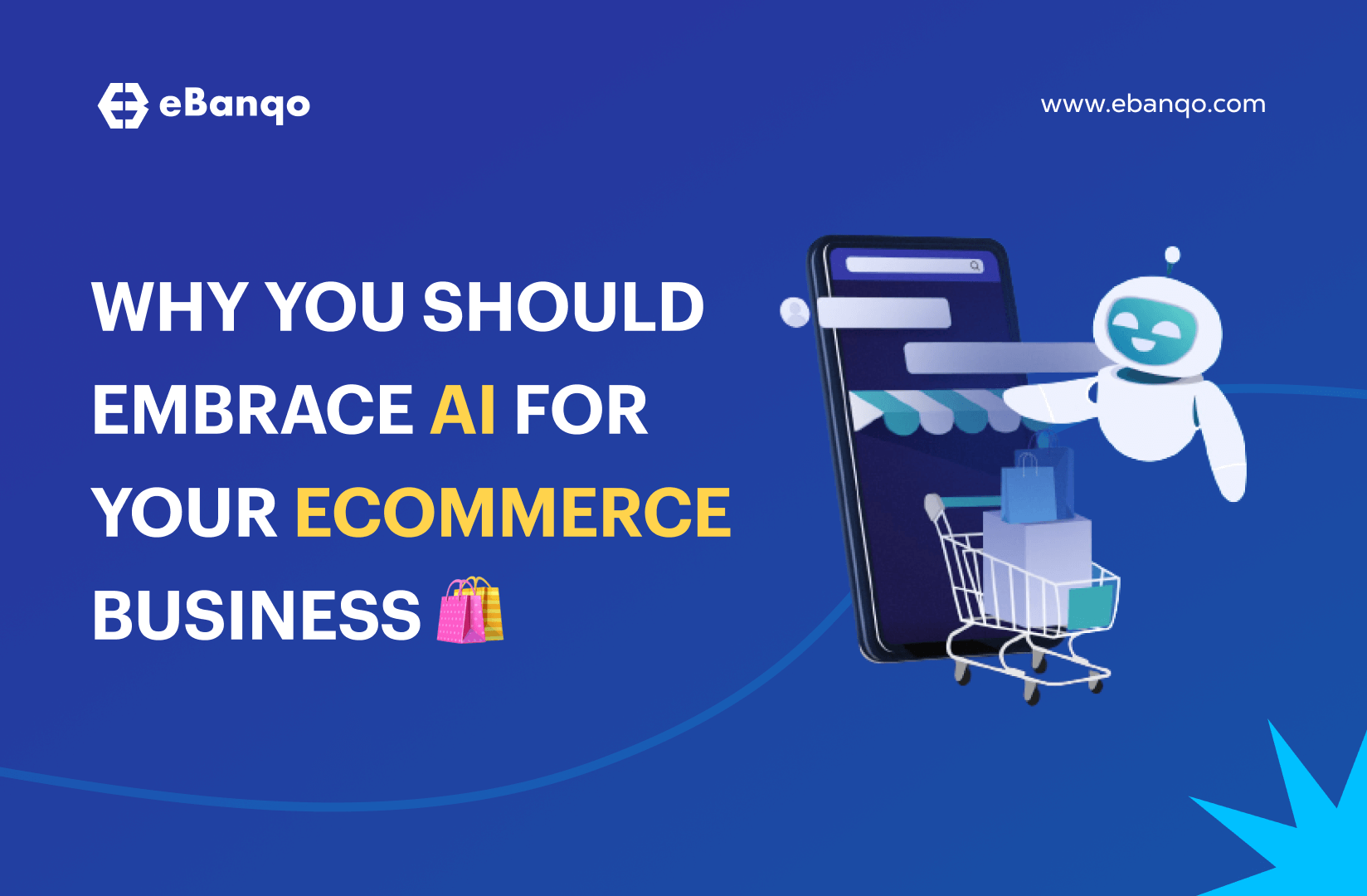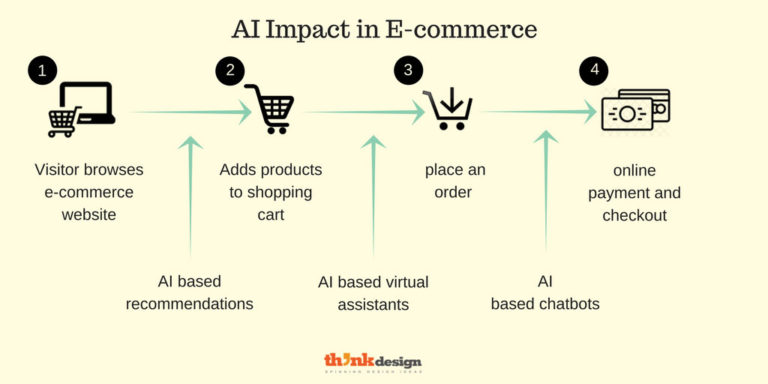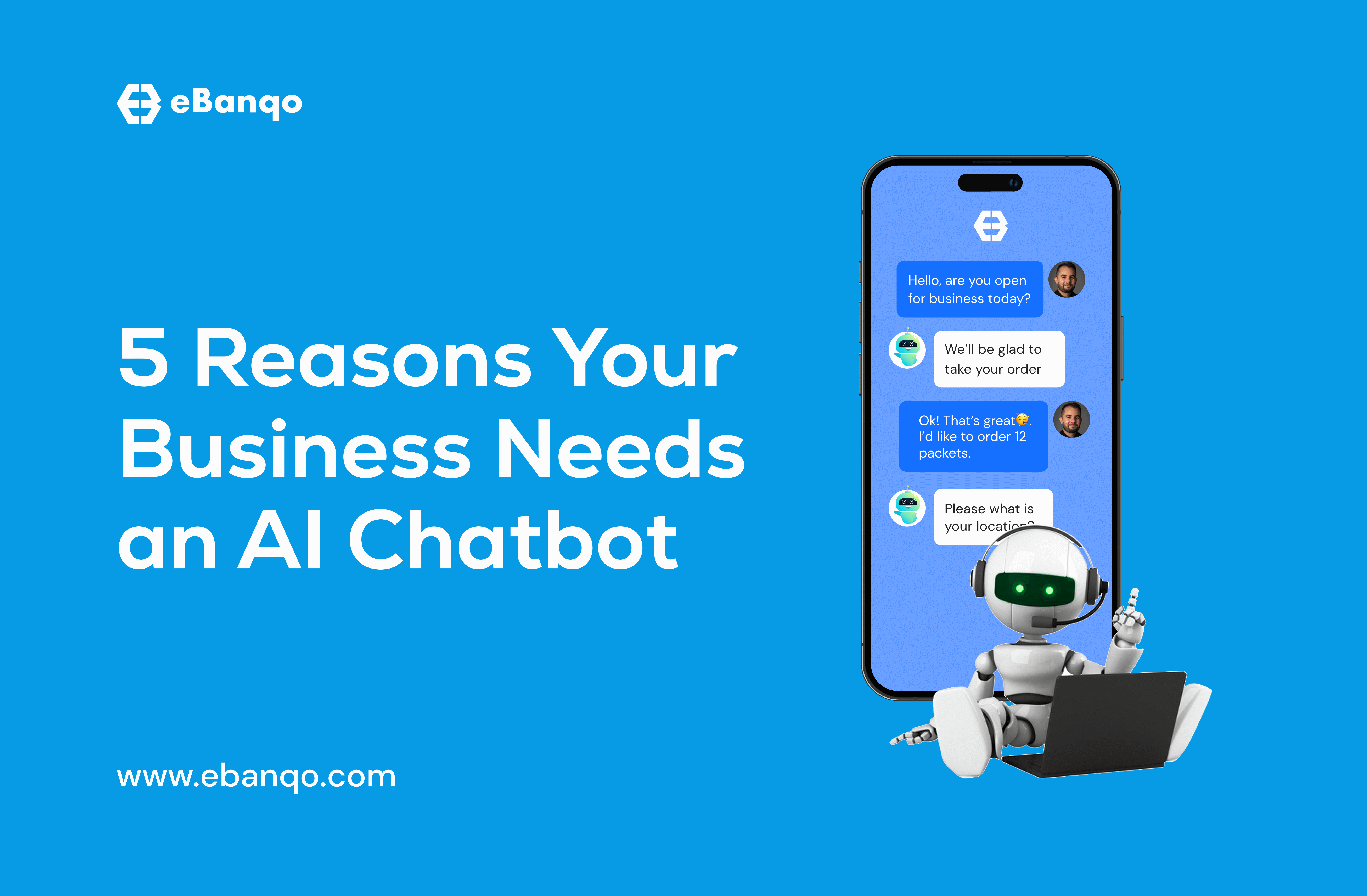
Table of Contents
Artificial Intelligence AI is slowly – scratch that – AI has now become virtually the lifeblood of all industries. The adoption rate has surged exponentially in the last year, from the health to the financial space. In a report made available by Prwatech, 82% of companies worldwide are either using AI or exploring integrating AI into their business process. This growth is evident in the AI global market size which is expected to reach $2 trillion in 2030 from $208 million in 2023 according to Statista.
The eCommerce space is not left out of the AI buzz. According to a recent study by Statista, 84% of e-commerce businesses are either actively integrating AI solutions into their business or have it as a top priority. In another study by PWC, 54% of e-commerce companies have already implemented GenAI (the same system that ChatGPT and Gemini run on) in some important functions part of their business.
This has undoubtedly led to a surge in AI-powered chatbot platforms that can handle customer queries, take orders, and suggest products they might like. These chatbots have become a go-to for many eCommerce businesses because they offer quick responses, help keep customers happy, and make life easier for the support team. In a recent survey by Juniper Research, eCommerce chatbot transactions are expected to reach $112 billion in 2024. This is in addition to the $142 billion retail consumers are spending via chatbots in 2024 according to Inside Intelligence.
As more businesses catch on, using AI in eCommerce is moving from being a nice extra to something almost a must-have.
Boost online sales and empower your customers with eBanqo Chatbot
Impact of AI in eCommerce

Below are some of the real impacts of AI in the eCommerce space:
Large Investment: E-commerce businesses are massively investing in AI technologies which is expected to reach $8 billion this year (Gartner).
Personalized Recommendations: Personalized recommendation systems for e-commerce websites account for roughly 30% of e-commerce revenue (Barilliance).
Industry Adoption: 84% of e-commerce businesses are either actively integrating AI solutions into their business or have it as a top priority (Statista)
Customer Interaction: It is estimated that 95% of all customer interaction will be powered by AI (Servion Global Solutions)
Market Size: The size of AI in the e-commerce market is estimated to reach a staggering $14 billion in 2028 (Globe Newswire).
Revenue Growth: eCommerce businesses have the potential to increase their retail revenue by 15% after fully implementing AI technologies into their e-commerce website (Cap Gemini).
The Rise of AI in eCommerce
AI didn’t burst onto the eCommerce scene overnight. Its early days were pretty quiet, with most people not even noticing it was there. Back in the noughties, AI was just starting to suggest products based on what customers had already bought. It was handy, sure, but nothing groundbreaking. Many business owners weren’t sure if AI was worth their time. Was it just another passing trend? Could it do anything meaningful for their business?
But things have changed a lot since then. Over the last ten years, AI has evolved from a cool feature to a business necessity. This transformation didn’t happen by chance. As technology improved—better algorithms, more data, the rise of cloud computing—AI became more capable and easier to use. Suddenly, it wasn’t just the big corporations like Amazon that were tapping into AI’s potential. Smaller online retail businesses started seeing AI as a desirable companion with up to 40% of retailers currently using AI.
These days, AI is almost everywhere in eCommerce. From chatbots to FAQs features, AI has become the go-to tool for online retail owners. In addition, businesses use AI to make shopping experiences more personal, handle the tedious, repetitive tasks that no one wants, and keep customers happy with 24/7 support. What started as something experimental has now become essential.
The COVID-19 pandemic pushed this trend forward. When everyone was stuck at home, eCommerce became a lifeline for so many businesses. Companies that hadn’t yet embraced AI found themselves scrambling to catch up. People’s shopping habits changed practically overnight, with more and more folks turning to online shopping. This shift meant eCommerce businesses had to adapt, and fast, to the use of AI—whether by automating customer service with chatbots or keeping track of inventory so things didn’t run out.
Right now, AI is driving some of the most significant changes in online shopping. Take personalization, for example. AI can look at what you’ve browsed, bought, or even liked on social media and use that information to suggest products you might love. Then there’s automation—AI is quietly working behind the scenes to process orders, manage stock, and answer customer questions.
And this is just the beginning. The role of AI in eCommerce is only going to grow from here. New technologies are already emerging, promising even more ways to improve the online shopping experience. AI isn’t just a trend that’s going to fade away—it’s here for the long haul and will keep changing the way we do business online, opening up a world of exciting possibilities for the future of eCommerce.
Benefits of AI for eCommerce Businesses

The benefits of integrating AI with your online store far outweigh the drawbacks, if any. They include the following:
Personalized Shopping Experience
AI has turned online shopping into a more personalized experience. It learns from customers’ intent which includes what they browse, buy, and even pause on, suggesting products they’re likely to want. For example, with AI, a clothing retail business can easily focus its resources on promoting denim jeans to customers most likely to be interested. This personalized approach helps customers find what they’re looking for more quickly, making them more likely to purchase or at least seriously consider it.
24/7 Customer Support
Customers don’t like being left unattended. Whether it’s waiting endlessly on a call while an annoying musical tune is playing at the other end instead of an agent’s voice or ignoring their message/queries on a business’s social media platform, this is one pet peeve they wish they could do without.
This is where AI-powered chatbots and virtual assistants come in. These tools have become key AI features for eCommerce businesses, ready to answer questions, resolve issues, and provide information instantly around the clock potentially making customers happy and encouraging repeat business.
Smarter Inventory Management
As a retail business owner, overstocking items that won’t be in demand for long can be harmful to your bottom line. In the past, managing inventory was often a guessing game, but AI has changed that. Big retail corporations like Amazon and Jumia are already using AI to automate their inventory management. For example, AI can analyze past sales data, current trends, and even factors like weather. If a sudden cold snap is forecasted, AI might predict an increase in demand for winter coats, ensuring you’re stocked up just in time. This way, businesses can avoid the costs of overstocking items that won’t sell and prevent the missed opportunities of running out of popular products when demand spikes.
Automation of Routine Tasks
AI is great at handling the repetitive, everyday tasks that can bog down a business. From processing orders to managing customer inquiries, AI can do it quickly and accurately. This automation not only saves time but also reduces errors, allowing business owners and employees to focus on more strategic work that can drive growth.
Data-Driven Decision Making
AI doesn’t just react to what’s happening now; it can also forecast what might happen next. Through predictive analytics, AI helps businesses make smarter decisions by spotting trends and patterns that might not be immediately obvious. Whether it’s adjusting inventory, refining marketing strategies, or targeting specific customer segments, AI provides the insights needed to make informed choices that boost business performance.
The Future of AI in eCommerce
AI is becoming a permanent part of eCommerce, and it will only get better. It’s already helping to make shopping more personal and efficient, and the future holds even more possibilities. We’re seeing AI take on new roles, like helping customers find what they need or visualize products in their homes.
Beyond just making things easier, AI is also helping businesses become more sustainable. By managing resources better and cutting down on waste, AI supports more responsible business practices, which matters to today’s shoppers.
But with all these advances, businesses need to use AI responsibly. The key is to be clear about how customer data is used and ensure that AI decisions are fair.
In summary, AI’s influence in eCommerce will keep growing. There’s a lot of potential for businesses that get on board now—improving customer experiences, streamlining operations, or working toward a more sustainable future.
Be the First to Experience the Power of AI for your eCommerce Store for Free





